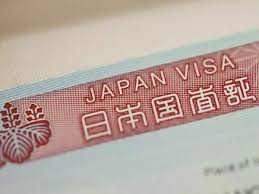Table of Contents
Micro, Small, and Medium Enterprises (MSMEs) play a vital role in driving economic growth, fostering innovation, and generating employment opportunities in many countries. Recognizing their significance, various governments around the world offer special schemes and incentives to promote the growth of MSMEs. One such initiative is MSME registration, which provides numerous benefits to these small businesses. In this article, we’ll explore what MSME registration entails and delve into the advantages it offers.
Understanding MSME Registration
MSME registration refers to the process by which a business entity is officially recognized as a Micro, Small, or Medium Enterprise based on its size, turnover, and investment in plant and machinery or equipment. The criteria for classification may vary from country to country, but generally, MSMEs are categorized based on parameters such as
Investment in Plant and Machinery/Equipment
This refers to the value of equipment, tools, and machinery a business uses in its operations. The investment threshold for MSME classification is typically lower for micro and small enterprises compared to medium enterprises.
Turnover
The annual revenue generated by a business is another criterion used for classification. Again, the turnover limits are usually lower for micro and small enterprises as compared to medium enterprises.
Subsidized Interest Rates
MSMEs with registered status may be eligible for lower interest rates on loans from financial institutions, making borrowing more affordable.
Credit Guarantee Fund Scheme
Governments often establish credit guarantee funds to provide collateral-free credit facilities to MSMEs, reducing the risk for lenders and facilitating easier access to credit.
Priority Sector Lending Many banks are mandated to allocate a certain percentage of their lending to the priority sector, which includes MSMEs. This ensures better availability of credit to small businesses.
Income Tax Exemptions
Some governments offer income tax exemptions or reduced rates to MSMEs, helping them retain a larger portion of their profits.
GST Benefits
MSMEs might enjoy simplified compliance under the Goods and Services Tax (GST) regime, making it easier to manage their tax obligations.
Industrial Parks and Clusters
Governments often establish industrial parks or clusters for MSMEs, providing them with access to shared infrastructure, utilities, and resources at subsidized rates.
Research and Development Support
MSMEs may receive assistance for research and development activities, promoting innovation and competitiveness.
Skill Development Initiatives
Governments might offer training programs to enhance the skills of the workforce employed in MSMEs, improving productivity and quality.
Priority in Government Procurement
MSMEs with registration could receive preference in government procurement processes, opening up lucrative business opportunities.
Export Benefits
Registered MSMEs might avail benefits like subsidies, concessions, and financial assistance to boost their export capabilities.
Easier Compliance
MSMEs may have simplified compliance requirements, reducing the burden of regulatory paperwork and filings.
Protection against Delayed Payments
Some countries have regulations that mandate timely payments to MSMEs by larger corporations, safeguarding them against financial stress.
In the dynamic landscape of modern economies, Micro, Small, and Medium Enterprises (MSMEs) stand as the backbone of innovation, employment, and economic diversification. These enterprises, often run by entrepreneurs with limited resources, play a significant role in driving inclusive growth and contributing to a nation’s GDP. Governments worldwide recognize their importance and have introduced MSME registration as a means to empower and uplift these small businesses. This article delves deeper into the concept of MSME registration and the myriad benefits it brings to the table.
Unveiling MSME Registration
MSME registration is a formal process through which businesses are classified as Micro, Small, or Medium Enterprises based on predefined criteria such as investment in machinery, equipment, and turnover. The exact parameters for classification may differ from country to country, but the intention remains consistent to provide specialized support to enterprises that fall within these categories. This recognition is more than just a label; it’s a gateway to a plethora of advantages.
Access to Credit
MSME registration can unlock easier access to credit and loans. Financial institutions and banks are more inclined to lend to registered MSMEs due to the reduced risk associated with them.
Reduced Interest Rates
Lower interest rates on loans and credit facilities are often extended to registered MSMEs, reducing the financial burden of borrowing.
Tax Benefits
Governments frequently provide tax incentives, exemptions, or reduced rates to registered MSMEs, enabling them to reinvest more of their earnings into business growth.
GST Benefits
Streamlined procedures and reduced compliance requirements under the Goods and Services Tax (GST) regime make tax management less cumbersome for registered MSMEs.
Industrial Estates
Many governments establish dedicated industrial estates or parks for MSMEs, offering shared infrastructure, utilities, and services at subsidized rates.
Technology Upgradation
Registered MSMEs may receive grants or support for adopting modern technologies and upgrading their production processes, enhancing efficiency and competitiveness.
Skill Enhancement
Governments often collaborate with training institutions to offer skill development programs tailored to the needs of registered MSMEs, enhancing the quality and productivity of their workforce.
Job Creation
With their propensity to grow rapidly, registered MSMEs become significant contributors to job creation, alleviating unemployment pressures.
Government Procurement
MSMEs with registration can enjoy priority in government procurement contracts, giving them a foothold in larger markets.
Export Promotion
Governments may offer financial incentives, subsidies, and support to registered MSMEs to encourage them to explore international markets.
Simplified Compliance
Registered MSMEs often face reduced regulatory compliance burdens, freeing up valuable time and resources for core business activities.Protection against Delayed Payments Legal provisions may safeguard registered MSMEs against delayed payments, ensuring a smoother cash flow cycle.
Also read: MSME Registration and Benefits
Conclusion
MSME registration is a crucial step for small businesses aiming to unlock a plethora of benefits. These benefits not only support the growth and sustainability of MSMEs but also contribute to the overall economic development of a nation. Governments recognize the pivotal role MSMEs play in job creation, poverty reduction, and innovation, making it essential to foster an environment where these enterprises can thrive. Whether through financial incentives, tax benefits, or infrastructure support, MSME registration serves as a valuable tool for empowering small businesses and driving economic progress.





